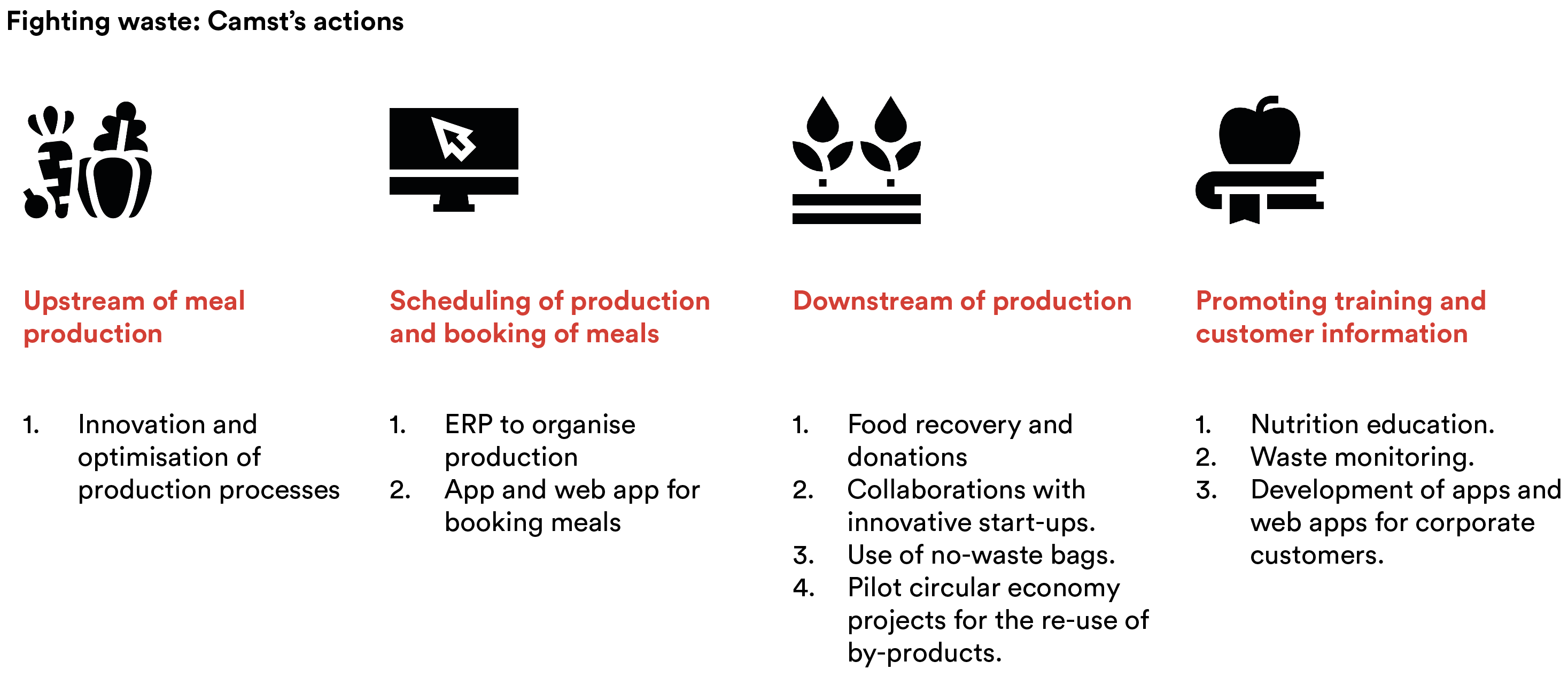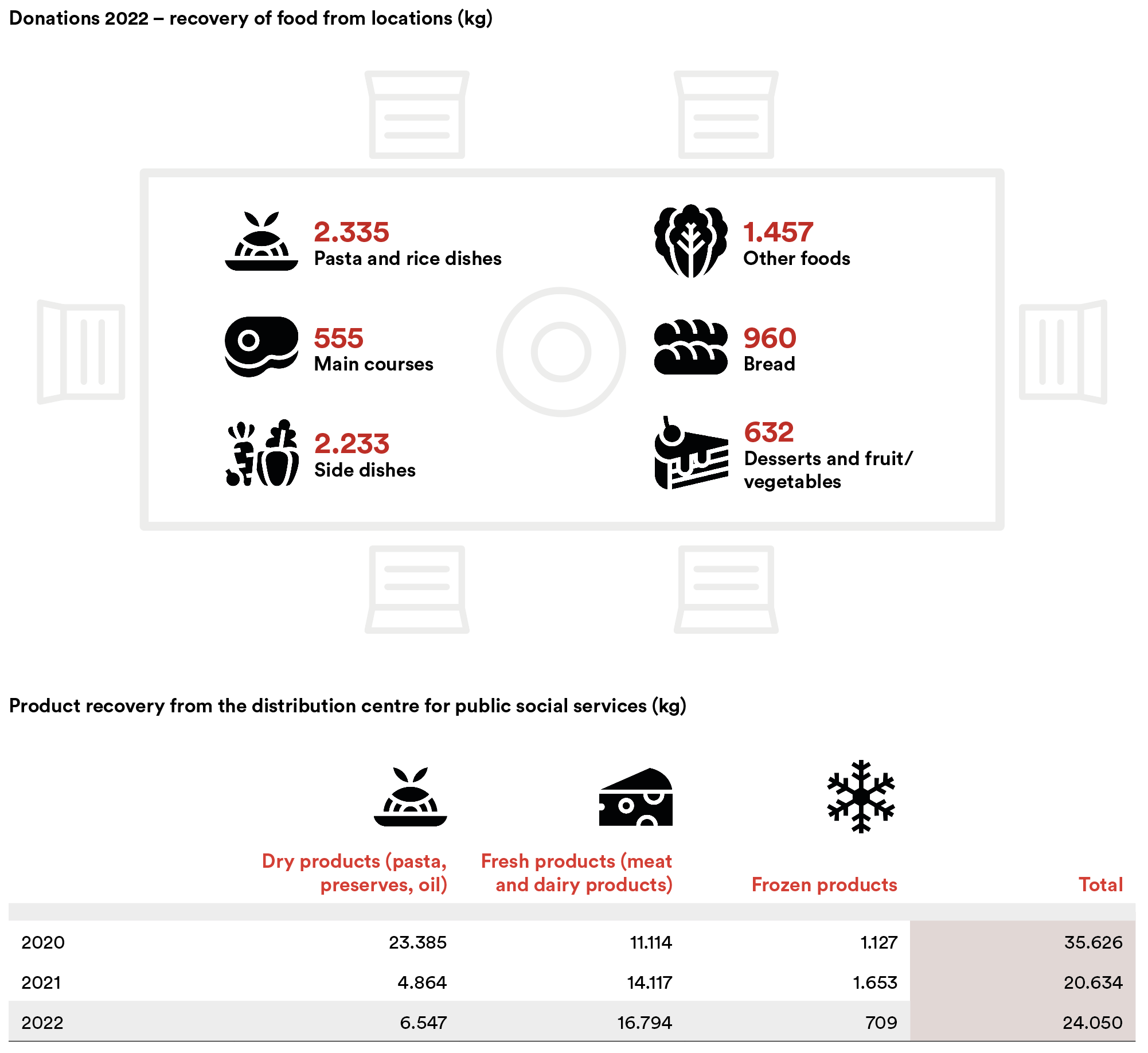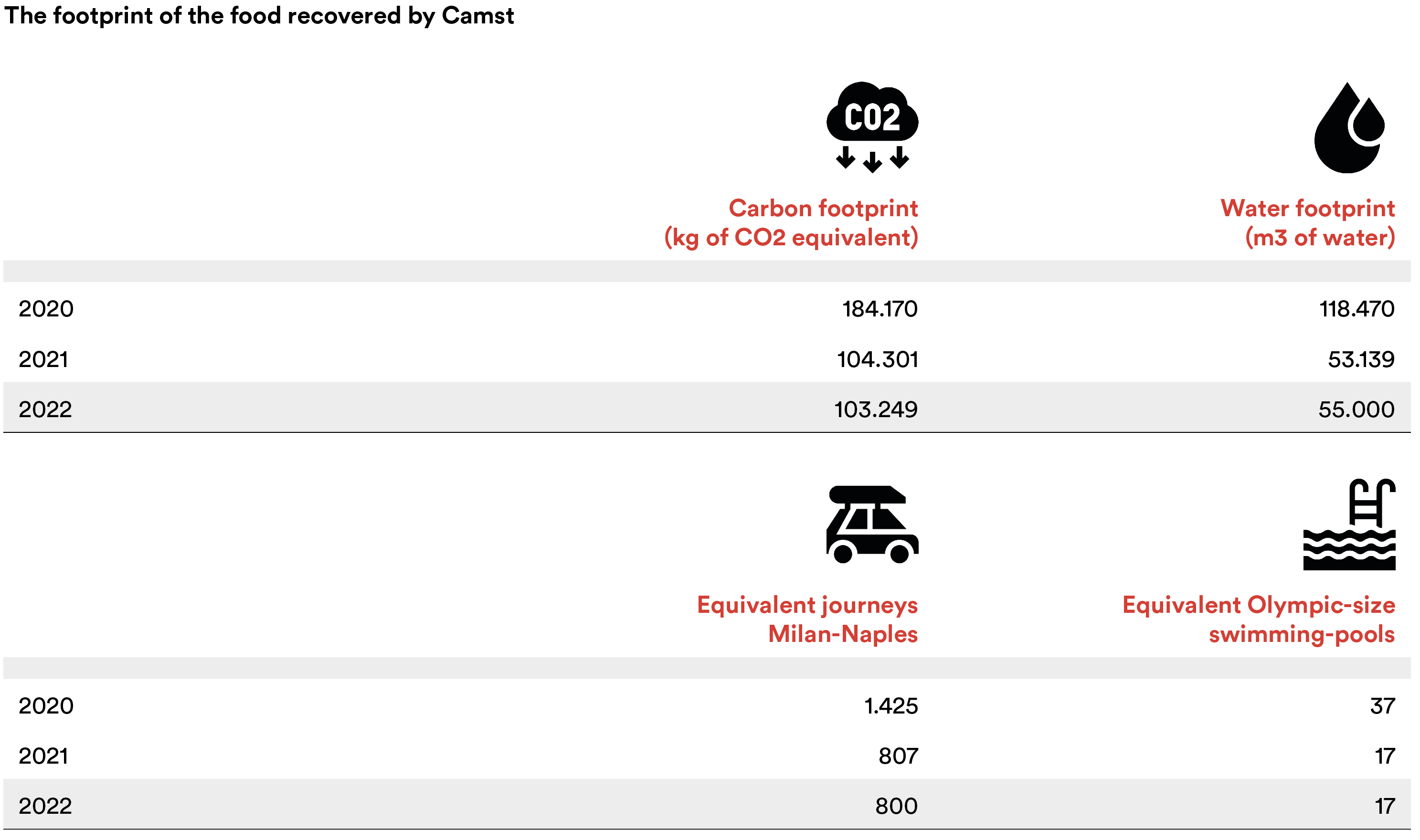Food waste reduction
A matter of awareness
The consumer society has been enabled by the myth of the "Cargo", an inexhaustible source of goods able to satisfy the desires of all mankind. Recent developments have taught us that this is not the case, and that we must eliminate waste. Never again.
Food waste is bad for the environment and society, since it implies the waste of not just the food itself but also the resources needed to produce and conserve something destined to be just thrown away. To address these challenges, the EU has adopted a new strategy for sustainable and inclusive growth, to stimulate the economy, improve people’s health and quality of life and care for the environment. In December 2019, the European Commission launched the European Green Deal, an action plan that aims to transform climate issues and environmental challenges into opportunities and make the ecological transition fair and inclusive for all. One of the main lines of action is the “Producer-to-Consumer” strategy to promote a fair, healthy and environmentally friendly food system, focusing on the need for action to change patterns of consumption and curb food waste.
Combating food waste, along with environmental protection and the responsible management of resources, are some of the principles guiding the action of Camst, a player aware of its role in a production chain with high environmental impact and its consequent duty to make genuine commitments.

Too Good to Go and Last Minute Market
Among its actions in the fight against food waste, Camst has been a member of the Too Good To Go network since as long ago as 2019. This project enables bars, restaurants, bakeries, pastry shops, supermarkets and hotels to sell unsold packs of food at a 70% discount using food magic boxes. Apart from Camst’s recovery of otherwise wasted food through its membership of the network, its partnership with Last Minute Market, a spin-off of the University of Bologna focused on the circular economy, has already enabled it to run campaigns against food waste and educational programmes for its various catering services for many years. Nutrition education starts at school, and plays a key role in preventing food waste. That is why in the school catering services of many primary and secondary schools, including those of the Municipality of Bologna, Camst has rolled out projects to reduce waste, which also involve its close monitoring. An integral part of Camst’s approach to nutrition education is the use of special packaging in which children can recycle and take home certain types of food, including bread, fruit and packaged snacks, and thus involve their families in these small actions to reduce food waste. The use of waste-saving bags has been welcomed by many municipalities in which Camst operates, and has been extended to other catering services, including corporate catering. 6,790 waste-saving bags were handed out in 2022.
Donations
Camst has been cooperating with nationwide community associations for the free distribution of food products to those in need for fifteen years. In this way, highly perishable foodstuff surpluses generated by normal production are recovered for consumption by people and families identified in cooperation with the authorities. Over the years, numerous collaborations have been established, through both direct contacts with local associations and partnerships with national organisations, such as Last Minute Market, already referred to, or Banco Alimentare. A project to rationalise the RAC (warehouse area where non-conforming products are stored in controlled conditions) and to reduce annual disposal costs by consigning these foodstuffs to non-profit organisations working in the province of Bologna has been in place for some time. In recent years, following the roll-out of stricter food safety regulations, goods with damaged primary packaging have no longer been donated. This regulatory change has led to a reduction in quantities.

The footprint of Camst
To get a clearer idea of the impact of its work to combat food waste, with the aid of Last Minute Market Camst has been calculating the footprint of the donations made to beneficiary organisations for a number of years. Specifically, environmental impact is measured by means of two indicators: carbon footprint, which measures the total amount of greenhouse gases released into the atmosphere throughout the life cycle of the product or service, and water footprint, or the total volume of water used in the production of a given good. The results of the analysis – based on a representative sample of products, given the wide variety served – are shown below.
